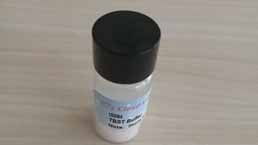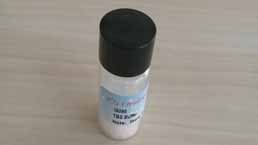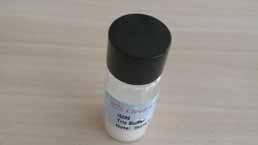Polyclonal Antibody to Hyaluronidase (HAase)
Hyaluronic Lase; Hyaluroniclase
- Product No.PAB217Ra01
- Organism SpeciesRattus norvegicus (Rat) Same name, Different species.
- SourcePolyclonal antibody preparation
- HostRabbit
- Potencyn/a
- Ig Type IgG
- PurificationAntigen-specific affinity chromatography followed by Protein A affinity chromatography
- LabelNone
- Immunogen RPB217Ra01-Recombinant Hyaluronidase (HAase)
- Buffer Formulation0.01M PBS, pH7.4, containing 0.05% Proclin-300, 50% glycerol.
- TraitsLiquid
- Concentration0.5mg/mL
- Organism Species Moren/a
- ApplicationsTesting in progress
If the antibody is used in flow cytometry, please check FCM antibodies. - Downloadn/a
- UOM 20µl100µl 200µl 1ml 10ml
- FOB
US$ 109
US$ 253
US$ 362
US$ 905
US$ 3620
For more details, please contact local distributors!
SPECIFITY
The antibody is a rabbit polyclonal antibody raised against HAase. It has been selected for its ability to recognize HAase in immunohistochemical staining and western blotting.
USAGE
Testing in progress
STORAGE
Store at 4°C for frequent use. Stored at -20°C in a manual defrost freezer for two year without detectable loss of activity. Avoid repeated freeze-thaw cycles.
STABILITY
The thermal stability is described by the loss rate. The loss rate was determined by accelerated thermal degradation test, that is, incubate the protein at 37°C for 48h, and no obvious degradation and precipitation were observed. The loss rate is less than 5% within the expiration date under appropriate storage condition.
GIVEAWAYS
INCREMENT SERVICES
| Magazine | Citations |
| International Journal of Research in Pharmacy and Science | Pepsin, Papain and Hyaluronidase Enzyme Analysis: A Review. Ebscohost: Source |
| Diabetes | Coordination Among Lipid Droplets, Peroxisomes and Mitochondria Regulates Energy Expenditure Through the CIDE-ATGL-PPARα Pathway in Adipocytes Pubmed:29986925 |
| Critical Care | 6% Hydroxyethyl starch (HES 130/0.4) diminishes glycocalyx degradation and decreases vascular permeability during systemic and pulmonary inflammation … Pubmed:29716625 |
| Pakistan Journal of Pharmaceutical Sciences | Hyaluronan as a mediator for the hepatoprotective effect of Diosmin/Hesperidin complex. Pubmed:30033401 |
| Catalog No. | Related products for research use of Rattus norvegicus (Rat) Organism species | Applications (RESEARCH USE ONLY!) |
| RPB217Ra01 | Recombinant Hyaluronidase (HAase) | Positive Control; Immunogen; SDS-PAGE; WB. |
| PAB217Ra01 | Polyclonal Antibody to Hyaluronidase (HAase) | Testing in progress |












